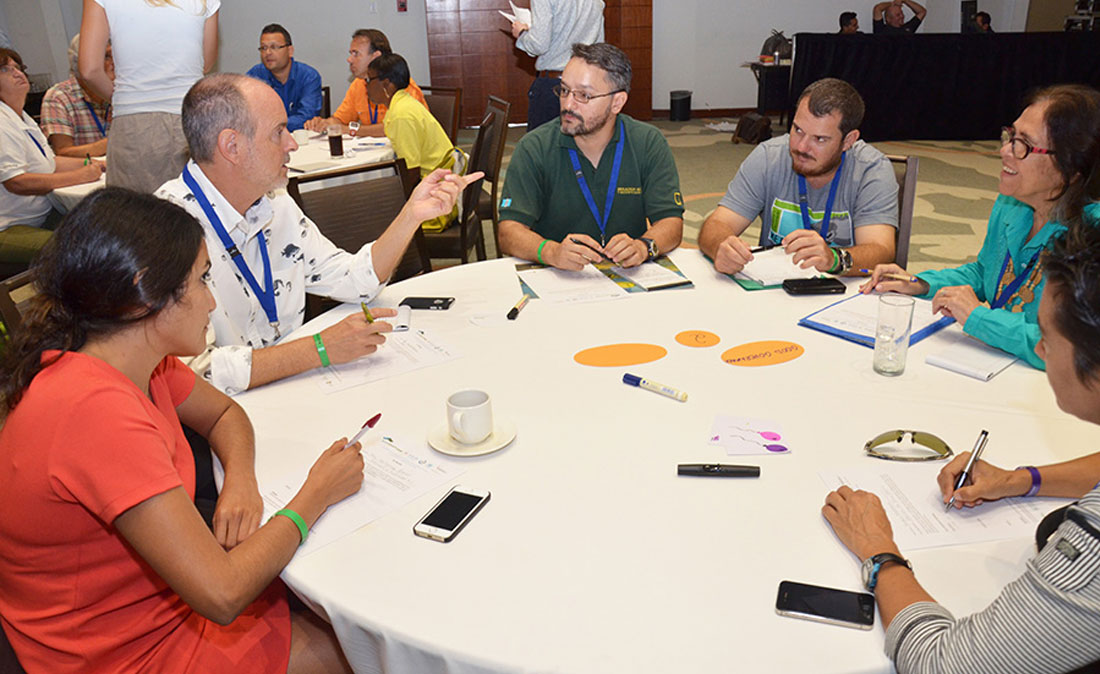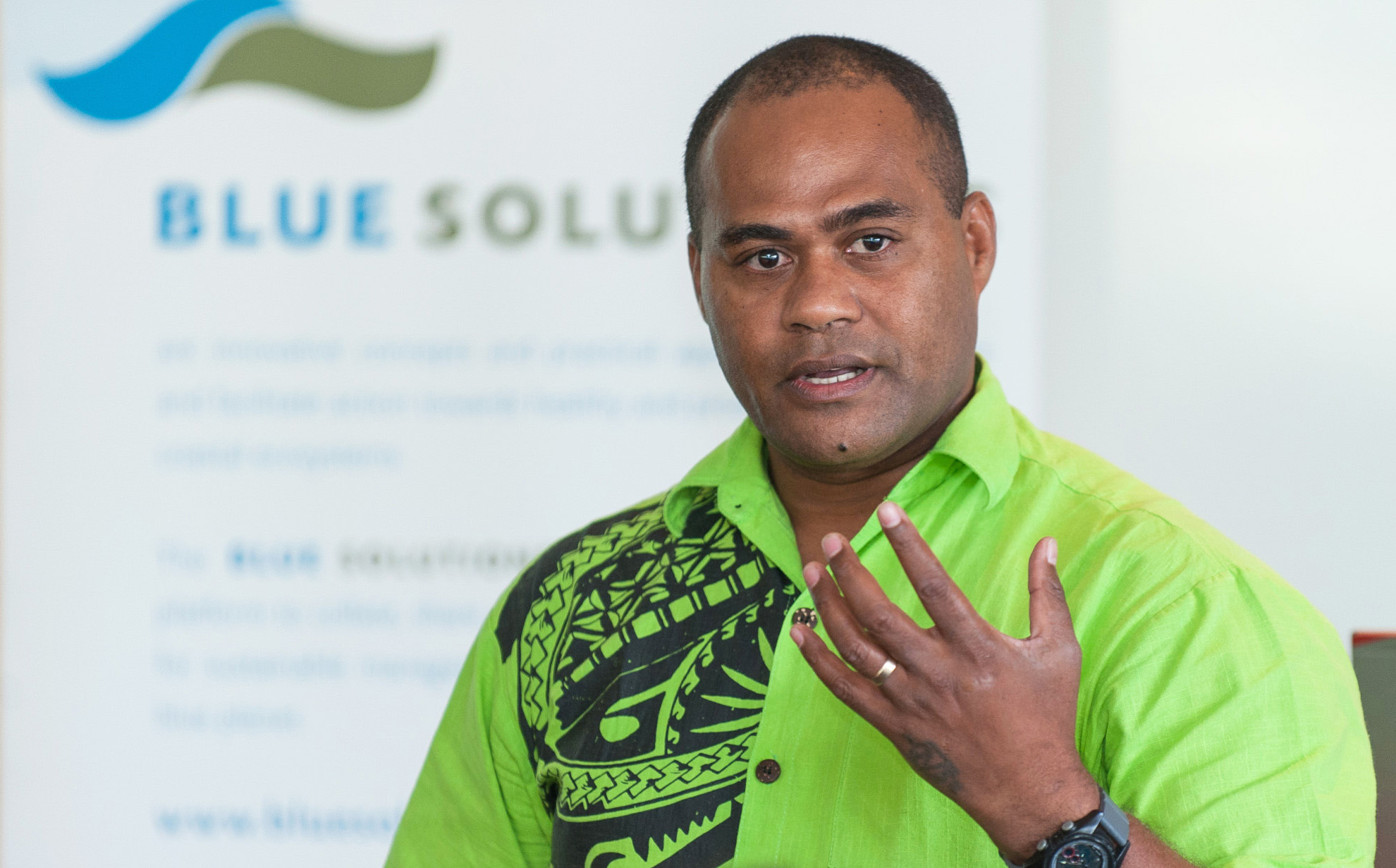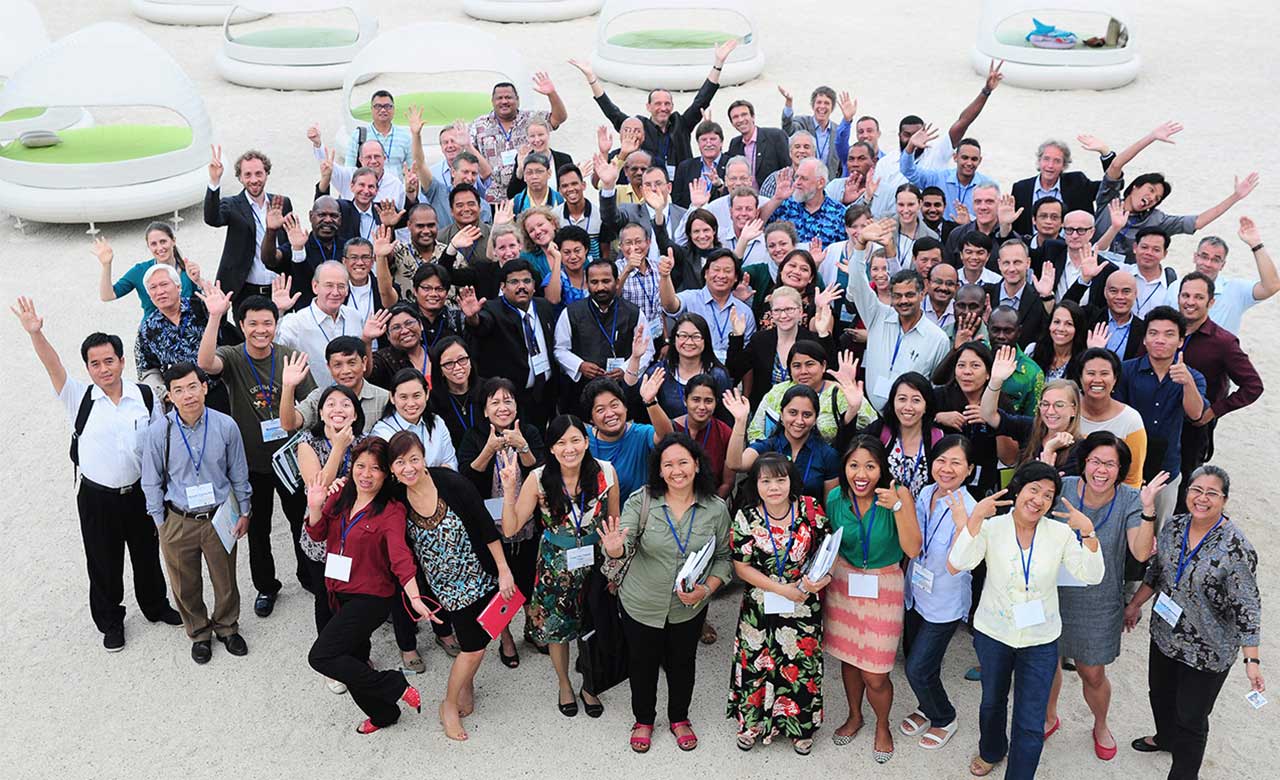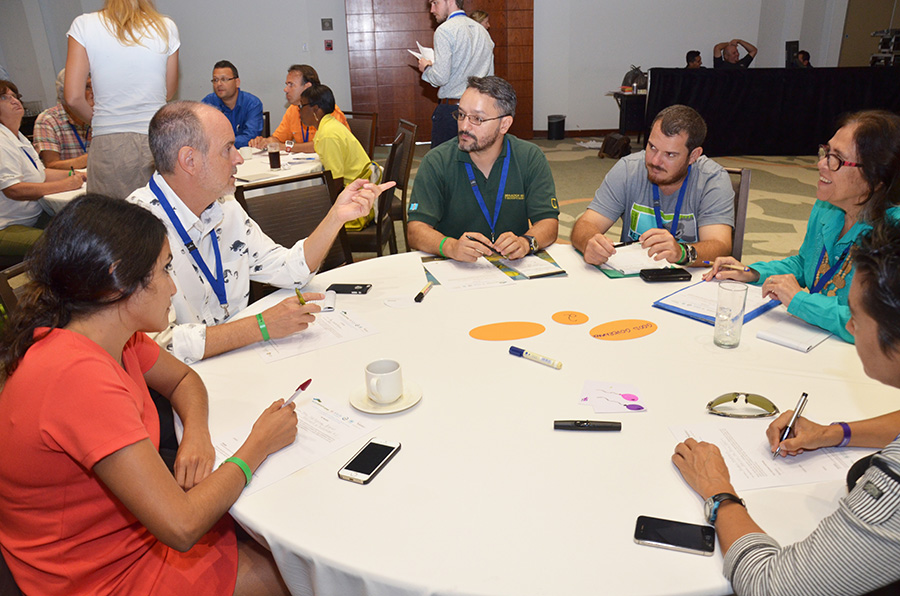Blue Solutions



OBJECTIVE
- To provide a global knowledge network and capacity development platform to collate, share and generate solutions for effective management and equitable governance of our planet’s marine and coastal living spaces
PROJECT DESCRIPTION
The oceans cover 71 percent of our planet’s surface. By 2050, the global population is likely to reach more than nine billion. More than three-quarters of these people will be living within 100 kilometers of a coastline. These waters, through the pro- vision of marine and coastal resources, help ensure the well-being of our growing population. Oceans and coasts are the natural life support system on which humankind depends.
Healthy marine and coastal ecosystems provide us with a multitude of valuable goods and services, such as food, climate regulation, coastal protection and cultural services. However, despite their significance for socio-cultural development, economic growth and carbon storage, many marine and coastal ecosystems are under threat. Overfishing, pollution, habitat loss and degradation are leading to a deterioration of the environmental status of oceans and coasts. The impacts of climate change exacerbate adverse effects on these highly productive and biologically diverse regions and intensify pressure on these ecosystems, thus threatening the provision of essential ecosystem services.
Blue Solutions provides a global knowledge network and capacity development platform to collate, share and generate solutions for effective management and equitable governance of our planet’s marine and coastal living spaces. The Blue Solutions Initiative is being implemented jointly by GIZ, GRID-Arendal, IUCN and UNEP, funded by BMUB/ICI.
Alifereti Tawake, Indo-Pacific LMMA network, Fiji. Participant of the Sustainable Oceans Lab:
” Firstly, I want to thank everyone for freely sharing your wisdom. I appreciate what each of us brings to the table. I needed this: I needed to pause and reflect, because I had started forming convictions that were clouding what I was trying to do. SOL allowed me to dig deep, to search for what I want to spend the rest of my life doing. Thank you for helping me find this. Thank you also to the convenors and facilitators. I am taking home some of the Lab tools, especially this process of speaking into a circle, which reminds me of our Cava-side-chats (where we sit around a bowl and tell stories). These tools will help me as a trainer, facilitator and mentor. I will use them to harness the energy to do more oceans work.”
SUCCESS STORIES
 In the waters of Tumbes district, northern Peru, giant manta ray (Manta birostris) populations are captured for local consumption or as non-intentional bycatch during unregulated and unreported fishing. Lacking legal protection, harvested individuals are often pregnant females suggesting this region being an important reproduction area. A growing demand in Asian markets for manta gill plates increases the population’s vulnerability to decline and extinction.
In the waters of Tumbes district, northern Peru, giant manta ray (Manta birostris) populations are captured for local consumption or as non-intentional bycatch during unregulated and unreported fishing. Lacking legal protection, harvested individuals are often pregnant females suggesting this region being an important reproduction area. A growing demand in Asian markets for manta gill plates increases the population’s vulnerability to decline and extinction.
The NGO Planeta Océano is empowering local fishermen in Tumbes to develop community-based manta ray ecotourism businesses. This provides a source of alternative income and counter further manta declines. Following targeted training, financial and technical support and an awareness campaign, fishermen offer guided swims to tourists. In this way, visitors can learn about the manta ray habitat and life cycle.
 The Sustainable Oceans Lab started in March 2015 in Berlin, Germany, commencing a year-long leadership programme which offers space for exchange and learning to leaders and change agents active in the management and governance of oceans. 30 participants from civil society, government and business communities engaged in diverse multi-stakeholder initiatives in 14 countries work together on issues they face in their respective initiatives and create sustainable development solutions to address the following question:
The Sustainable Oceans Lab started in March 2015 in Berlin, Germany, commencing a year-long leadership programme which offers space for exchange and learning to leaders and change agents active in the management and governance of oceans. 30 participants from civil society, government and business communities engaged in diverse multi-stakeholder initiatives in 14 countries work together on issues they face in their respective initiatives and create sustainable development solutions to address the following question:
How can we work together to enhance the sustainable management of our marine ecosystems globally?
The Sustainable Oceans Lab represents a new approach to the challenge of ensuring our marine ecosystems are sustainable. The Lab is built on the idea that just as scientific and technical labs address our scientific and technical challenges, social labs are needed to address our socio-economic and political challenges. The Lab focuses its efforts on an action-oriented, emergent strategy, and offers an approach of disciplined experimentation. Instead of developing a single, linear plan, inside a single institution, the Lab is designed to support a portfolio of initiatives and efforts across multiple institutions and geographies to follow an iterative approach of implementing initiatives.
VIDEO
PUBLICATIONS
COUNTRY
Multinational Cooperation
DURATION
Jan 2013 - Dec 2018
Commission Agency
BMUV



